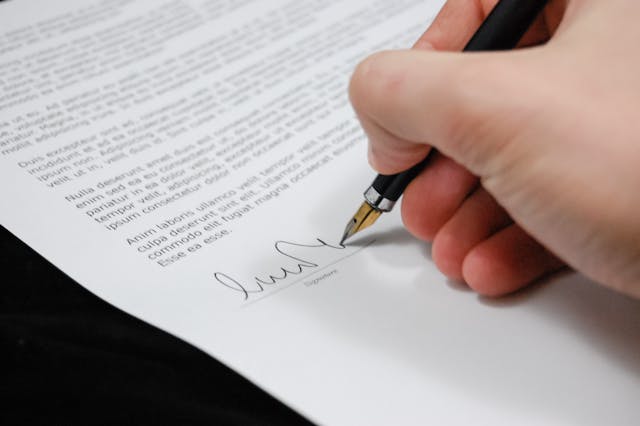Workplace injuries can be a life-altering experience. Beyond the immediate pain and stress, dealing with legal and financial ramifications often follows. Maintaining accurate and comprehensive records becomes crucial. These records not only serve as a personal document of your journey but also play a key role in any legal proceedings that may arise. Whether you have slipped and fell, suffered from repetitive strain injuries, or encountered an accident involving machinery, the aftermath can be chaotic. Therefore, focusing on detailed documentation is vital to ensure you are protected and can secure any benefits you may be entitled to.
Understanding the Importance of Accurate Records
Accurate record-keeping provides concrete evidence regarding the circumstances of your injury. From detailing the accident’s specifics to documenting your medical treatment, these records encompass much more than just facts. They paint a vivid picture of the events and their impact on your life. This documentation serves multiple purposes, significantly strengthening your case should you need to seek compensation.
The need for well-maintained records becomes evident when considering that insurance companies may dispute your claim. A well-documented history of your injury can visually support your case and clarify any uncertainties. Earning this kind of trust from insurance adjusters can dramatically improve your likelihood of a satisfactory outcome.
Types of Records to Keep
Maintaining a mix of documents is crucial for constructing a strong case. Important records include accident reports, medical bills, and correspondence with your employer or insurance company. Each document plays a unique role and can often lead to a clearer understanding of your situation. Medical documentation should be particularly detailed. Include all diagnoses, recommended treatments, and follow-up appointments. This information creates a time-stamped narrative that outlines your recovery trajectory. By doing so, you provide a comprehensive overview of the injury’s effects on your life, not just physically but emotionally and financially too.
Legal Documentation and Consultation
If your situation escalates to the point where legal action is needed, having meticulous records will streamline the process. Engaging a qualified Wyoming personal injury attorney or another experienced legal professional can benefit you tremendously. They can offer insights regarding the type of documentation needed and the appropriate way to structure your claim. Your attorney can lead you on the path toward an effective personal injury claim, ensuring that you have all the necessary paperwork for your case preparation. With the right legal guidance, you can navigate the complexities of the legal system with greater confidence and improve your chances of a successful outcome.

Documenting Medical Treatment
Medical documentation goes beyond simply saving bills. You should keep records of all healthcare providers visited, treatment plans evaluated, and therapies initiated. Each step in your treatment journey is an essential piece of evidence that strengthens your compensation claim. Record-taking can also extend beyond traditional medical visits.
Keep a personal log where you document your pain levels each day and any physical limitations you experience. Regularly updating this log can substantiate your case by providing ongoing evidence of your struggles. Maintaining thorough and consistent records ensures that no detail is overlooked when it comes time to present your case. This documentation not only validates your experience but also reinforces the legitimacy of your compensation claim.
The Role of Witness Statements
Sometimes, you may not be the only one who witnessed the injury. Colleagues or other bystanders can provide a different perspective. Gathering witness statements can be extremely beneficial in clarifying the circumstances surrounding the incident. Ask for their accounts as soon after the accident as possible, while the memories are still fresh.
Documenting witness statements should include details such as names, contact information, and their role in the incident. Having firsthand testimonials can solidify your version of events and reinforce your case for a fair settlement.
Keep records of all communication with your employer regarding your injury. This may include notification of your injury, any requests for leave, and discussions about workplace accommodations. Documenting these interactions can provide evidence that you complied with company policies throughout the process.
The Importance of Timelines
Documenting specific timelines can significantly strengthen your case. This timeline should capture every crucial event surrounding your injury—from the accident occurring, through treatment appointments, to follow-ups with your employer and insurance company. When timelines are maintained, they present an organized narrative of how the injury has impacted your life over time. These recorded timelines can also facilitate your attorney’s ability to compile a comprehensive case. The overall narrative they provide can significantly influence negotiations, showcasing the extent of the effect your injury has had on your daily routines and overall well-being.
In the aftermath of a workplace injury, keeping detailed and accurate records is essential to protecting your rights and securing the compensation you deserve. Whether documenting medical treatments, gathering witness statements, or keeping track of communication with your employer, every piece of information plays a pivotal role in strengthening your case. By maintaining a comprehensive timeline and ensuring that each record is thorough and organized, you provide a clear picture of the injury’s impact on your life. Consulting with a legal professional can help ensure that your records are structured effectively for any potential legal proceedings. The more meticulous you are in documenting your injury, the better positioned you will be to navigate the complexities of insurance claims, medical bills, and legal disputes, achieving a fair resolution.
